Whately’s guerrilla gardener: Ellen Coss Kennedy is no stranger to hard work and improbable goals
| Published: 07-17-2023 3:30 PM |
Imagine a contest where participants choose from various challenges and must fully complete at least one to stay in the game. Whoever achieves the most goals is the winner, yet there’s a catch: since some options are long-term, the final outcome can’t be known for years.
If you were to participate, dear reader, which would you pick? Tracking lions and leopards in the wilds of Kenya, or hitching a boat ride with Doctors Without Borders while seriously ill with malaria to seek medical treatment from the personal physician of that country’s president? If you lean toward the less exotic, you might choose to rehabilitate a horse involved in an infamous abuse case. Or you could work for years as a paramedic. Hoping for something easier? Try teaching seventh and eighth grade science.
Being an orchid judge must be lovely: looking at stunning flowers and deciding which is best, right? But an orchid judge must undergo a seven-year process, and be nominated to the post after learning which is which among 38,000 species and infinite hybrids.
In terms of more standard options, there is one, but it’s more arduous than all the rest put together, and those who master it rarely receive the recognition they deserve. How about raising two children as a single parent – starting in your teens – while putting yourself through school? Give it a go: attain a college degree while balancing child rearing, work, and all the rest. (What’s that you say? “Give me the lions”?)
There lives in our midst a woman who’s achieved all of the above, and more. Perhaps that’s why – when Ellen Coss Kennedy wished to restore a dilapidated garden in time for Whately’s 250th anniversary – she reached her goal despite obstacles.
“I started a few years before Whately’s 250th,” said Kennedy. “People driving by thought I was nuts. I worked in a silly triangle where several roads meet, with no water on site and in full sun. I reclaimed a space where someone planted flowers years ago, but it had turned into a sorry mess of daylilies and some horrible large blue things I can’t even identify.”
Kennedy is no stranger to hard work, improbable goals, and unusual choices. How did the kid who grew up outside of Boston become the woman who does more before breakfast than some people do in a week? There are many clues along Kennedy’s path. For starters, her parents were unconventional: her father, Bill Coss, was a jazz critic and music expert whose side hustle was being a magician, and her mother, Rosamond Coss, researched giving birth naturally at a time when childbirth was highly medicalized.
Her parents were in their forties and already had two teens when Ellen was born. “They thought they’d be empty nesters soon, but then I came along. I was an extremely active kid, so they gave me riding lessons for my sixth birthday. I was born to do horses, and I basically moved into the barn.”
Article continues after...
Yesterday's Most Read Articles
 Greenfield homicide victim to be memorialized in Pittsfield
Greenfield homicide victim to be memorialized in Pittsfield
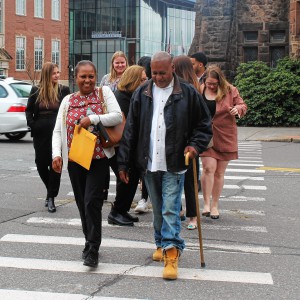 Former Greenfield man granted new trial after 1995 murder conviction, walks free
Former Greenfield man granted new trial after 1995 murder conviction, walks free
 On The Ridge with Joe Judd: What time should you turkey hunt?
On The Ridge with Joe Judd: What time should you turkey hunt?
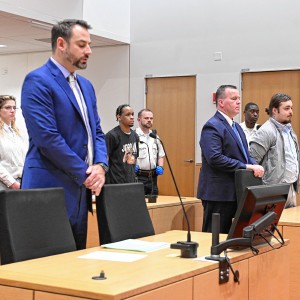 Judge sets bail for Millers Falls assault suspects
Judge sets bail for Millers Falls assault suspects
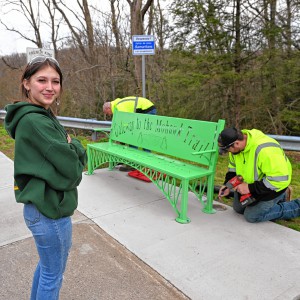 Franklin Tech student welds artistic bench for French King Bridge
Franklin Tech student welds artistic bench for French King Bridge
 As I See It: Between Israel and Palestine: Which side should we be on, and why?
As I See It: Between Israel and Palestine: Which side should we be on, and why?
While in her teens, Kennedy attended the institution formerly known as Friends World College, living in Trinidad and Tobago, and later in Kenya, where she met her mentor, George Adamson. The husband of Joy Adamson (author of “Born Free,” which became the Oscar-winning film), George Adamson left deep impressions on Kennedy.
“George was 88 years old at the time,” said Kennedy. “We’d get up at dawn, travel in a Land Rover, and walk many miles while tracking lions through insane circumstances. I don’t know how I survived it all. Yet I was never worried, because George correctly evaluated animal situations. He’d sit near a lion, and the lion would just look at him. Next, the lion would move toward George as he sat smoking his pipe. Animals approached him calmly, without fear. I watched from a short distance as George called animals out of the wild, and it was like seeing two old friends meet in a coffee shop. Then, after a time, the lion or leopard would just get up and leave.”
When she arrived in Kenya, “I was a white American teen who thought I knew everything. But meeting George Adamson... this guy was like Obi-Wan Kenobi. The man was magic.”
Kennedy’s moxie may derive from having unconventional parents, a childhood steeped in horses, phenomenal mentoring, or some combination – with other astonishing elements thrown in – but suffice it to say Kennedy gets the job done.
Bolstered by a background in professional gardening and landscaping, she’s fond of “guerrilla gardening,” a term coined in the early 1970s to describe raising plants in neglected or abandoned spaces. Some perform guerrilla gardening with no regard to whether land is public or private, but Kennedy engages only with public areas. Her past projects include Whately’s police and fire stations.
“Some of the weirder plants you see around here probably come from me,” said Kennedy. “I go for bright plants, unusual wildflowers, tall and gaudy specimens, and things that’ll come back successfully, like irises or stunning daffodils.” Her father-in-law was involved with resetting the stone at the fire station, “but when I started rebooting the garden there, I found a nightmare of daylilies. You couldn’t see the stone at all; you could barely see the flagpole.” Kennedy says she’s “opposed to daylilies – they create havoc, edging out whatever else was there.”
Kennedy is also passionate about ecosystem health and pollinator protection. “When I started gardening in Whately, it was eerie – there were no pollinators, there weren’t even squirrels. It was a wasteland caused partly by the former proliferation of tobacco farms, as well as the practice of people mowing their lawns early and often. There were almost no flowers, except at John LaSalle’s place (LaSalle Florists, a longtime Whately business).”
Plants that thrive in former tobacco fields aren’t generally good for soil health, said Kennedy. “Yarrow, wild berries, and black walnut trees tend to replace crops like tobacco and potatoes, which themselves aren’t great for soil.” Lack of horticultural diversity takes a toll on wildlife. “Rivers are byways for butterfly migration, and way stations are necessary. I witness butterflies straggling along on thermals, and I want to make more stops for them.”
Whately is home to some amazing gardens, said Kennedy. “There’s a fabulous garden on Long Plain road, and another good site half a mile down. In creating the triangle garden, I wanted to put in big plants to supply pollen and places where solitary bees can hang out overnight.” Bees love to sleep in dahlia blossoms, and Kennedy dreams of erecting ‘Pollinator Rest Stop’ signs.
Kennedy’s gardening habit springs from her desire for beauty and for ecological reasons, but there’s a sentimental angle, too: ”Whately is my husband’s hometown,” she said of JP Kennedy, recently sworn in as fire chief. The couple met while working as paramedics.
“JP cares deeply about Whately, and working on local gardens is one way I support him.”
She also honors her husband’s family through gardening. “JP’s Uncle John’s property was being torn down, and it meant ripping out a type of bearded iris I’ve seen only in Whately. It’s not tall, but it’s super hardy. Maybe (residents) got it from the Sears Roebuck catalog years ago? I wanted to let people know that planting the Whately iris may help other irises in your garden.” Kennedy learned that the iris was legal to move, and put the word out. “You can’t turn your back on heritage breeds of plants.”
Funded by a tiny budget from the town, Kennedy started the triangle garden with daffodils, tulips, sunflowers and dahlias, opting for bold, bright colors. With the town’s anniversary on the horizon, she aimed for spectacular effect. “I wanted tall things to create a nice backdrop for photos. I put a lot of my own money into the project, and many plants came from my own garden. I asked local growers for donations, too. Nasami Farm provided tiny plants; next year, they’ll be amazing. LaSalle gave me a ton of plants.”
To start, Kennedy had to dig up what remained from years of neglect. “If I see something ugly, I intervene. That site was out of control. I actually can’t imagine a stupider place to put a garden – no water, not a bit of shade – but there it was.” Kennedy hauled water to the site in her car; later, Whately firefighters brought a water truck and gave the new plants a drink.
Kennedy did nearly all the labor herself. She often grabs time either to or from the barn where she keeps her horses, and rarely schedules time to work on the garden. “I just stop and work for a while, and then continue on.”
Like their mom, Kennedy’s grown sons have remarkable drive. Ian Coss is an award winning podcast creator and founding member of PRX, the largest on-demand catalog of public radio programs available for broadcast and internet use. Sebastien Coss is the director of the real estate and planning arm of the Trust for Governors Island, which draws close to a million visitors each year just off the coast of Manhattan.
“Throughout my life, I’ve completely lucked out in meeting people and finding situations,” said Kennedy. It’s clear that the town of Whately lucked out in gaining Ellen Coss Kennedy as a friend and supporter. Check out her handiwork at the corner of Long Plain Road and Christian Lane, and prepare to be dazzled by shapes, color, diversity, and joy.
EvelineMacDougall is the author of Fiery Hope, a mom, and a lifelong musician, gardener, and artist. She welcomes comments and story ideas from readers: eveline@amandlachorus.org.
]]>

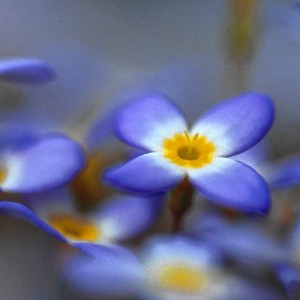 Speaking of Nature: Indulging in eye candy: Finally, after such a long wait, it’s beginning to look like spring is here
Speaking of Nature: Indulging in eye candy: Finally, after such a long wait, it’s beginning to look like spring is here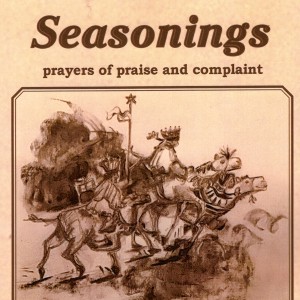 Celebrating ‘Seasonings’: New book by veteran preacher and poet, Allen ‘Mick’ Comstock
Celebrating ‘Seasonings’: New book by veteran preacher and poet, Allen ‘Mick’ Comstock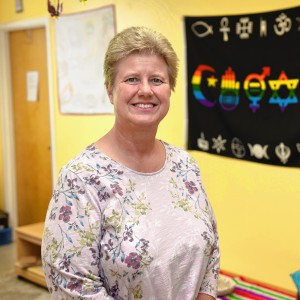 Faith Matters: How to still the muddy waters of overthinking: Clarity, peace and God can be found in the quiet spaces
Faith Matters: How to still the muddy waters of overthinking: Clarity, peace and God can be found in the quiet spaces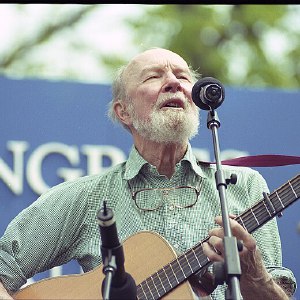 A time for every purpose under heaven: Free sing-a-long Pete Seeger Fest returns to Ashfield, April 6
A time for every purpose under heaven: Free sing-a-long Pete Seeger Fest returns to Ashfield, April 6
